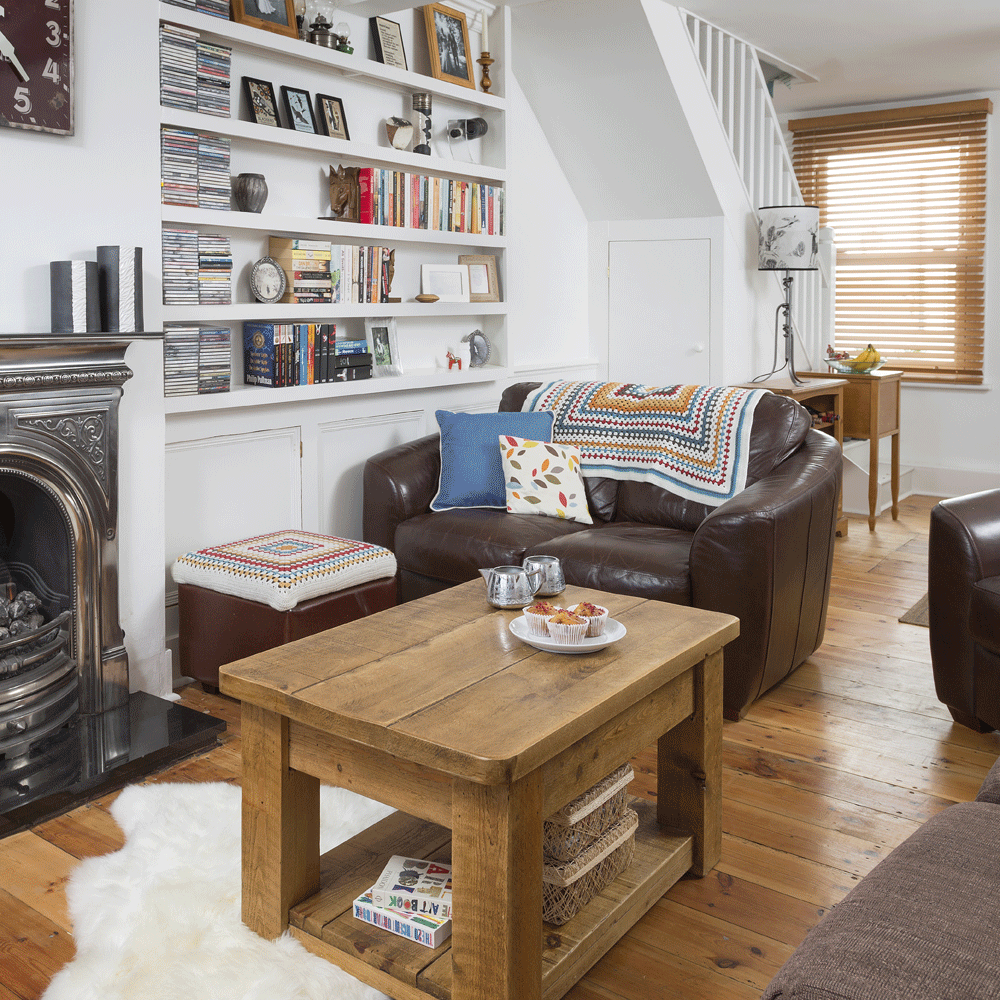What is contents insurance? What it covers and why you need it
The home insurance for the belongings that 'live' in your house explained
Getting your home insured is just one of the many tasks involved when you move house. But determining which insurance cover you need is often confusing. Home insurance is broken into two different types; buildings insurance and contents insurance. So what is contents insurance? And how does it differ from buildings insurance? All is explained below.
Think of buildings insurance as the home insurance that covers the buildings structure, fixtures and fittings – from walls to kitchen worktops. Contents insurance covers the personal possessions that you move into your house – the moveable items, such as furniture.
What is contents insurance?
'Home contents insurance provides cover for the personal possessions in your home,' explains Sarah Applegate, Data Lead, Aviva General Insurance. 'These possessions include the movable items that you bring when you move into a property – such as furniture, crockery, books, clothes etc – and also items that you might not consider such as carpets and curtains.'
'Many insurers also offer add-ons which provide extra cover in addition to standard home contents insurance,' continues Sarah. 'Common add-ons include accidental damage cover. This enables you to claim for damage caused by spillages or breakages to possessions within the home. It could cover things like knocking over a TV or spilling paint on a carpet or sofa.' It's the level of accidental cover that makes this type of home insurance vary, depending on the insurance provider. You should confirm what your accidental damage cover actually covers.
'Personal belongings cover is another popular add-on,' Sarah goes on to explain. 'It provides cover for your personal items (e.g. mobile phone, laptop, jewellery, camera equipment) while you're away from your home. Most insurers request that any personal item worth more than a set limit (for example £2,000) will need to be individually listed on your policy.'

What is the purpose of contents insurance?
'The average home has contents worth tens of thousands of pounds,' says Sarah, Data Lead, Aviva. 'This is a sizeable sum to find if the contents were destroyed by an unexpected event such as a flood or a fire. Home contents insurance is designed to replace or repair these items if they are lost or damaged through an event as outlined on the policy.'
Standard claims include events such as fires, floods, burglaries and water leaks. 'The most common cause of claim under Aviva’s home contents cover is for accidental damage,' Sarah explains. 'This may be a useful addition to your policy.'
Sign up to our newsletter for style inspiration, real homes, project and garden advice and shopping know-how
What items are included under contents insurance?
Home contents insurance covers the vast majority of possessions within the home. But there are some common exclusions and important points to note.
Sarah explains what the most common exclusions from a homes content insurance policy are:
- 'Phones, laptops and tablets away from home: A claim will take into account how the loss or damage occurred. So if you have standard home contents cover (which covers events such as flooding, fire or burglary for example), but you don’t have a personal belongings add-on, you are unlikely to be covered under your home contents insurance, if you smash or lose your phone away from home.'
- 'Cash. Many insurers will cover cash in the home, but only up to a specified limit.'
- 'Pedal cycles. Many insurers also cover pedal cycles in the home, but they may specify that they need to be locked away. For example in a house, garage or shed or chained and locked to a secure point such as railings or a drainpipe. Again, you may wish to get personal belongings cover or a special pedal cycle add-on to cover your bicycle away from home.'
- 'Single item limits: Most insurance providers will state that an item needs to be specified separately on the policy if it is above a single item limit (often around £2,000) to ensure that you have the right level of cover.
- 'Valuables, such as jewellery and watches. Insurers may also place some restrictions on certain valuables such as expensive watches or jewellery. Particularly valuable items may need to be kept in a safe when not being worn.'
Make sure to check what your policy includes, and weigh up any exclusions that you might want in place. Speak to your insurer if you are unsure about your level of cover.

What isn't covered by contents insurance?
Finance writer and expert Emily Perryman explains, 'Contents insurance doesn’t cover the actual fabric of your property, such as its walls, windows and roof, nor does it cover outside fixtures like garden fences and gates . These would be covered under buildings insurance instead.'
'You usually have to pay extra to cover accidental loss or damage to your possessions. Boilers are typically excluded from standard policies but can be covered by adding ‘emergency home cover’. Similarly, mobiles and other gadgets may not be automatically included, however you can usually cover them by adding ‘personal possessions’ cover to your policy.'
‘You can protect items you take away from the home – handbags, laptops and cameras – in case they get lost or stolen,’ says Pam Quinn, spokesperson for the British Insurance Brokers Association. ‘And if your children are striding out to college or university, your own policy can be extended to cover their contents too.’

Is contents insurance worth having?
When you're on a budget and trying to limit costs, you may ask do I need home insurance? But it's always worth having contents insurance, because you just never know. 'Every resident hopes they won’t be faced with burglaries, floods or fires' says Sarah. 'But the sad reality is that some people will. You should ask yourself: “in the event that the worst happened, would I be able to afford to replace everything out of my own pocket?”'.
'Unfortunately many people would not be able to cover the cost of replacing all the contents in their home. So contents insurance can provide invaluable peace of mind, just in case.'
'Contents insurance is also worth considering if you are renting your property,' Sarah goes on to advise. 'If you are a tenant, contents insurance can support you with the costs involved if you need to temporarily move out of your home.' An example of this is when you're forced to move into alternative accommodation, such as in the event of a flood. 'These costs can soon stack up and often amount to thousands rather than hundreds of pounds' Sarah warns.
As the old saying goes, it's better to be safe than sorry.
Tamara was Ideal Home's Digital Editor before joining the Woman & Home team in 2022. She has spent the last 15 years working with the style teams at Country Homes & Interiors and Ideal Home, both now at Future PLC. It’s with these award wining interiors teams that she's honed her skills and passion for shopping, styling and writing. Tamara is always ahead of the curve when it comes to interiors trends – and is great at seeking out designer dupes on the high street.